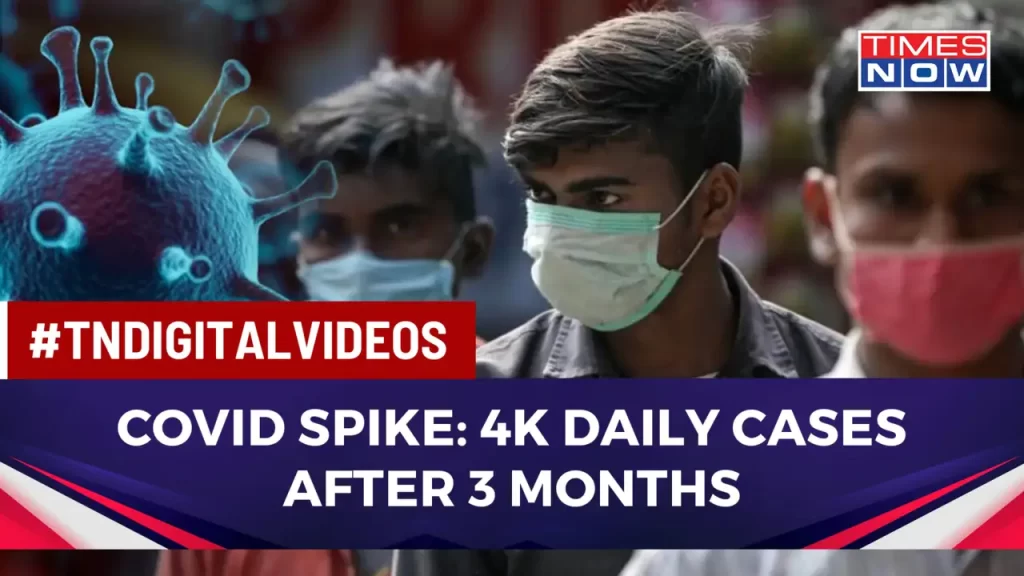When India’s COVID-19 count approaches 4,000, the Delhi High Court demands a report from the government.
As India navigates the early waves of the COVID-19 pandemic, the Delhi High Court has stepped in with a strong effort, seeking clarity and answers from the national government. As the countrywide count of confirmed COVID-19 cases inched closer to 4,000, fears of preparedness, resource planning, and public health infrastructure have come into stark relief.
A Country at a Crossroads
India is not an exception to the rapid global spread of the novel coronavirus pandemic, which began in China in late 2019. The level of infection escalation cstayed troubling even after the government took unusual measures to slow the spread by imposing a rigorous 21-day countrywide lockdown.
As of the most recent reports, India’s confirmed cases have risen to near the 4,000 mark and over 100 deaths have been reported. The pandemic interrupted normal life, tested public health infrastructure, and left a sense of uncertainty that has made citizens nervous and officials under pressure.

Delhi High Court Steps In
The Delhi High Court is asking for a status report from the Central Government, acknowledging the gravity of the matter and the importance of open government. The ruling, which was issued in response to a public lawsuit with the government’s COVID-19 response plans, asks that the government provide explanation on several important issues:
Test protocols and test kit availability
Release of personal protective gear (PPE) for healthcare professionals
Measures for providing food and shelter to the homeless and migrant workers
Preparation of quarantine centers in states
The public’s increasing concern about the nation’s readiness and the efficiency of the crisis management mechanisms is reflected in the court’s intervention.
The Migrant Worker Crisis
The plight of migrant workers has been one of the most pressing issues that has sparked legal scrutiny. Following the sudden implementation of the lockdown, millions of daily wage workers and short-term employees were left homeless and without a place to live, which led to a mass migration from cities to rural areas, many of them traveling hundreds of kilometers on foot.
This movement has raised concerns about the virus’s possible spread to rural India, where there is usually little healthcare infrastructure. The Center has been asked by the court to provide an explanation of the measures taken to address this social problem, including the construction of shelters, the distribution of meals and the testing of these peoples for illnesses.

Healthcare System Under Strain
The strength of India’s healthcare system is the other matter of concern. Physicians and nurses, who are on the front trenches of this pandemic, have voiced concern at the dearth of PPE kits and N95 masks. Numerous cases of healthcare workers contracting infections because a result of insufficient protective equipment have been reported.
In view of this, the Delhi High Court asked the government to provide comprehensive information about the acquisition and distribution of medical equipment and the actions being made to increase the number of medical facilities, like the construction of temporary hospitals in public areas.
Judicial Activism in Public Health Emergencies
India’s judiciary has in the past been a key player in promoting social justice and safeguarding citizens’ rights. During times of the COVID-19 pandemic, this function has become even more crucial. The Delhi High Court confirmed the necessity of openness, responsibility, and a rights-based approach to crisis management while asking a report from the Center.
The court’s action has been praised by legal experts, who think it may set an example for future judicial intervention in public health issues. “The judiciary is not trying to restore rule,” according to constitutional attorney Anjali Menon, “but it is reminding the government of its responsibility for protecting life and dignity—especially of the vulnerable.”
The Center has responded by restating its dedication to handling the problem in a timely way. The government has mentioned a number of initiatives, including:
Swift ramping up of testing facilities
Collaborating with state-governments to provide important goods
Publicity campaigns relating to hygiene and social distancing
Routine daily press briefings to update the country
However, critics remind out that there is still more work to be done, especially in addressing economically deprived parts of society. Deep systemic flaws that need urgent attention have been exposed by the lack of coordination during the first few days of the lockdown and the non-operational support mechanisms.

Community Support and Public Responsibility
Public cooperation is the foundation for a successful pandemic response, even though legal scrutiny and government involvement are necessary. People are asked to follow restrictions, avoid from social interaction, and encourage community efforts aimed at helping the weak.
Many community groups, employees, and non-profits have stepped up to provide the impoverished with food, masks, and hand sanitizers. These spontaneous initiatives are a reflection of India’s overall strength and empathy, even during difficult times.
